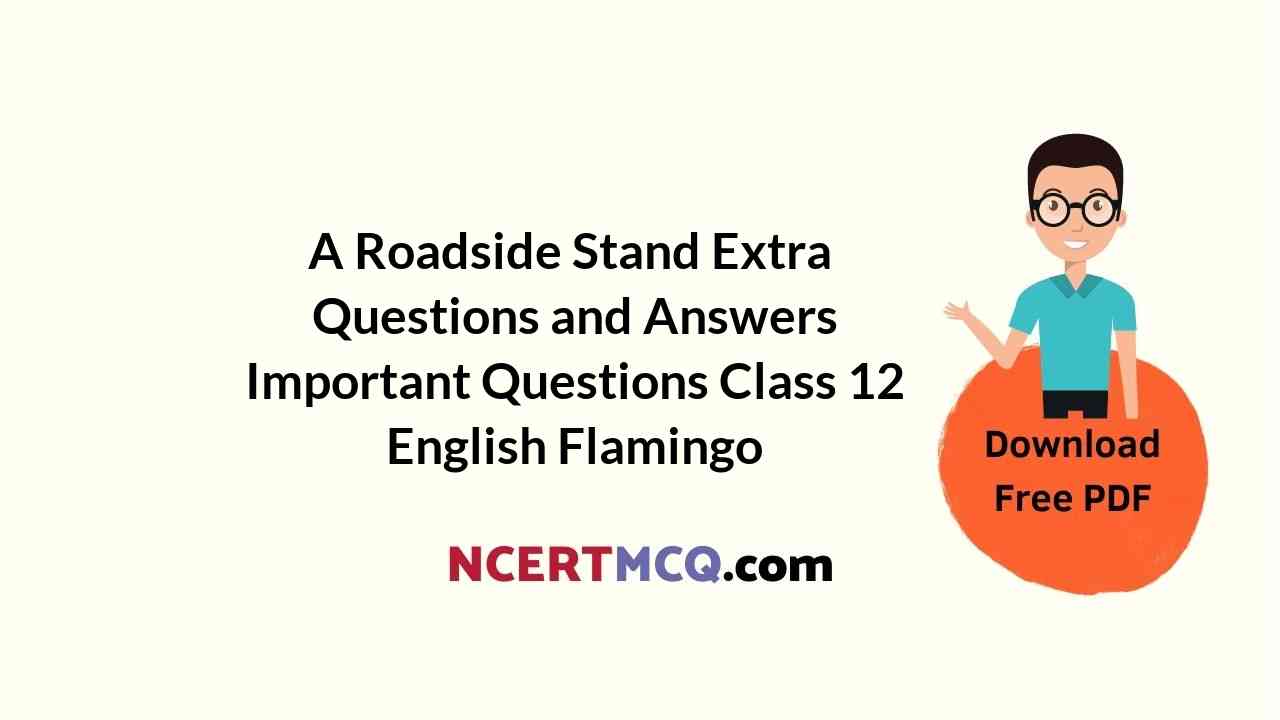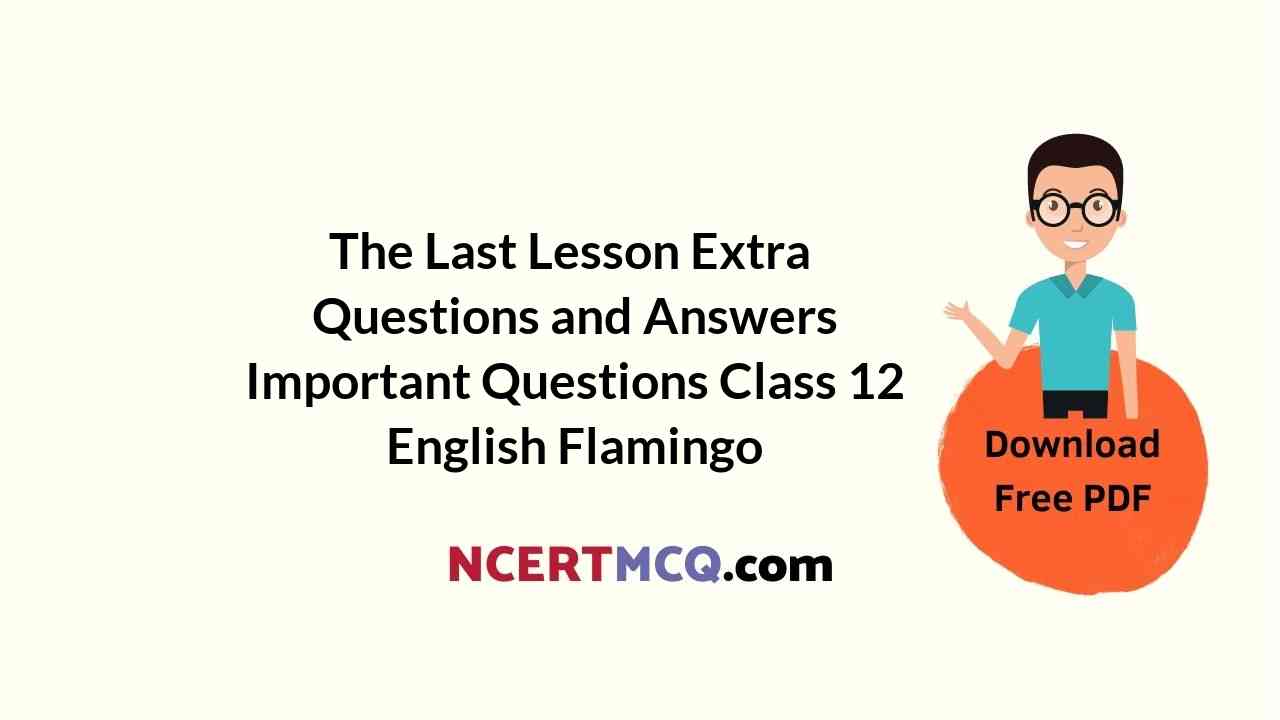Students can access the CBSE Sample Papers for Class 12 Business Studies with Solutions and marking scheme Term 2 Set 6 will help students in understanding the difficulty level of the exam.
CBSE Sample Papers for Class 12 Business Studies Term 2 Set 6 with Solutions
Time allowed: 2 Hours
Maximum Marks: 40
General Instructions:
- This is a Subjective Question Paper containing 12 questions.
- This paper contains 4 questions of 2 marks each, 4 questions of 3 marks each and 4 questions of 5 marks each.
- 2 marks questions are Short Answer Type Questions and are to be answered in 30-50 words.
- 3 marks questions are Short Answer Type Questions and are to be answered in 50-80 words.
- 5 marks questions are Long Answer Type Questions and are to be answered in 80-120 words.
- This question paper contains Case/Source Based Questions.
Question 1.
Explain briefly any two types of employment tests. (2)
Answer:
The types of employment tests are: (any two)
(1) Aptitude test: Aptitude is the ability to do something or a natural tendency to measure the hidden qualities of the candidates.
(2) Intelligence test: Intelligence tests aims at testing the candidate’s reception power, memory power, reasoning power, etc and include verbal comprehension, word fluency, speed of perception, etc.
(3) Dexterity test: Dexterity tests are considered for jobs requiring physical work to measure motoring skills, ability to memories, how quickly and efficiently body moves, etc.
(4) Personality test: Personality tests aim at determining the personality traits and characteristics to measure the effect of the candidates’ personality on work performance.
![]()
Question 2.
Why is it said that directing takes place whereever superior subordinate relationship exists? (2)
Answer:
Every manager, from top executive to supervisor performs the function of directing. The directing takes place wherever superior subordinate relations exist.
Question 3.
Setting Performance Standards is the first step in the process of one of the function of management. Name the process and also state next two steps of the function of the management. (2)
Answer:
Steps in the controlling process are:
- Setting performance standards: The standards of performance are set which serve as the criteria against which actual performance will be measured.
- Measurement of actual performance: Actual performance is measured in an objective and reliable manner in the same units in which standards are set.
![]()
Question 4.
One of the functions of Securities and Exchange Board of India is ‘Promotion affair practices and code of conduct in securities market. State the category to which this function belongs and state anyone other functions of this category. (2)
Answer:
Protective Function. Other functions of this category are: (Any one)
- It prohibits fraudulent and unfair trade practices like misleading statements, manipulations, price rigging etc.
- It controls insider trading and imposes penalties for such practices.
- It undertakes steps for investor protection.
Question 5.
Do you agree? Give three reasons in support of your answer. It is said that “without control the best of plans can go awry”. (3)
Answer:
Yes, I do agree with this statement. Reasons in support of this statement
(1) Accomplishing organisational goals: controlling function measures progress towards the organisation goals and brings to light the deviations, if any, and indicates corrective action.
(2) Making efficient use of resources: by exercising controlling function, manager seek to reduce waste and spoilage of resources.
(3) Improving employee motivation: a good control system ensure that employees know well in advance what they are expected to do and what are the standards of performance on the basis of which they will be appraised.
(4) Judging accuracy of standards: controlling enables management to verify whether the standard set are accurate and objective.
(5) Facilitating co-ordination in action: controlling provides direction to all activities and efforts for achieving organisational goal. Each department and employee is governed by predetermined standards which are well coordinated with one another, (any three).
![]()
Question 6.
Why is staffing considered an important function of management in all types of organization? State any three reasons.
OR
“Internal sources of recruitment are more economical for an organisation but it has some drawbacks too”. Discuss. (3)
Answer:
Proper staffing ensures the following benefits to the organisation:
(1) helps in discovering and obtaining competent personnel for various jobs;
(2) makes for higher performance, by putting right person on the right job;
(3) ensures the continuous survival and growth of the enterprise through the succession planning for managers, (any three)
OR
Staffing is putting people to jobs. Staffing is that part of the process of management which is concerned with obtaining, utilising and maintaining a satisfactory and satisfied workforce. Proper staffing ensures the following benefits to the organisation:
- It helps in discovering and obtaining competent personnel for various jobs.
- It makes for higher performance, by putting right person on the right job.
- It ensures the continuous survival and growth of the enterprise through the succession planning for managers.
- It improves job satisfaction and morale of employers through objective assessment and fair rewarding for their contribution.
![]()
Question 7.
Textile manufacturer Super textiles reported 43% fall in its profits in the fourth quarter ended 31 March 2017, which is beyond the acceptable range 25% decided by the company. This was due to higher fuel cost and lower yield on account of demonetization. The company aims to implement cost saving measures by restructuring contracts and its business processes to meet its targets in the future.
(A) Name the function of management discussed above.
(B) Also identify and explain the steps of the function of management discussed above. (3)
Answer:
The function of management which enable the management to assess whether the set standards are followed is called controlling. Controlling means ensuring that activities in an organisation are performed as per the plans. Thus, it is a goal oriented function. The two steps of controlling process taken by production manager in this case are:
(1) Analysing deviations: It is important for a manager to determine the acceptable range of deviations. If the deviations are significant critical point control and management by exception should be used by the manager. In this case, the delay in completion of order by substantial period is a matter of concern.
(2) Taking corrective action: The final step in controlling process is taking corrective action. No corrective action is required when the deviations are within acceptable limits. In this case, the delay is expected to be substantial period. The production manager take corrective action which might involve additional workers and equipment to the project and overtime work.
![]()
Question 8.
Length of production cycle affects the working capital requirements of an organisation. Explain, how? (3)
Answer:
Production cycle is the time span between the receipt of raw material and their conversion into finished goods. Some businesses have a longer production cycle while some have a shorter one. Duration and the length of production cycle, affects the amount of funds required for raw materials and expenses. Consequently, working capital requirement is higher in firms with longer processing cycle and lower in firms with shorter processing cycle.
Question 9.
Ali Mohammad, the CEO of Super Ltd. believes that human resource is the most important asset of the firm. He believes that no organisation can be successful unless it can fill and keep filled the various positions provided for in the structure with the right kind of people.
Identify the function of management being discussed above and state any four benefits to the organisation that its proper application in the firm will ensure. (5)
Answer:
The function of management being discussed above is Staffing. Proper staffing ensures the following benefits to the organisation:
- Helps in discovering and obtaining competent personnel for various jobs;
- Makes for higher performance, by putting right person on the right job;
- Ensures the continuous survival and growth of the enterprise through the succession planning for managers:
- Helps to ensure optimum utilisation of the human resources. By avoiding overmanning, it prevents under-utilisation of personnel and high labour costs. At the same time, it avoids disruption of work by indicating in advance the shortages of personnel; and
- Improves job satisfaction and morale of employees through objective assessment and fair rewarding of their contribution.
![]()
Question 10.
You are a financial advisor of a newly established company with a paid up capital of rs. 500 crores. The management of the company desires to get its shares traded at stock exchanges. Suggest the name of the stock exchange for the purpose. Give any four reasons in support of your answer. (5)
Answer:
The company should get its shares listed at Over the Counter Exchange of India (OTCEI). OTCEI was set up to provide small and medium companies an access to the capital market It is a place where buyers seek sellers and vice- versa and then attempt to arrange terms and conditions for purchase/ sale acceptable to both the parties.
The main features of OTCEI are as follows:
- Nationwide listing: Listing on one exchange can have transactions with all the counters in the whole country.
- Exclusive list of companies: On OTCEI, all those companies are listed whose issued capital is ₹ 80 lakhs or more, investor’s registration. All the investors doing transactions on the OTCEI have to get themselves compulsorily.
- Investor’s registration: All the investors doing transactions on the OTCEI have to get themselves compulsorily registered.
- Transparency in transactions: All the transactions are done in the presence of the investor, the rates of buying and selling can be seen on the computer screen.
Question 11.
There are several methods of floatation of new issues in the primary market. State any four such methods.
OR
Everest Securities Ltd. was established to deal in securities. It was registered as a stock broker with National Stock Exchange (NSE) and Bombay Stock Exchange (BSE) to trade in securities listed at these exchanges. It is also a depository participant with CDSL and NSDL In the first three years, it developed its business successfully. After that the composition of Board of Directors changed.
Some customers complained to the customer care centre of the company that shares purchased by them and for which the payment has been duly made, were not transferred to their D’mat Accounts by “Everest Securities Ltd”.
![]()
The executive of customer care centre promised the aggrieved customers that their shares will be transferred to their respective D’mat Accounts very soon. But the company delayed the matter and didn’t transfer the shares of the customers to their Demat Accounts. This eroded investors confidence and multiplied, their grievances.
(A) Identify the step of trading procedure in a stock exchange which has not been followed by “Everest Securities Ltd”.
(B) Name the Apex statutory body of capital market to whom customer can complain to redress their grievances.
(C) Write two values not followed by Everest Securities Ltd. (5)
Answer:
Methods of floatation in the primary market: (Any five points)
(1) Offer through Prospectus is a method of floating new issues by inviting subscriptions from the public through issue of prospectus.
(2) Offer for Sale is a method in which the securities are not issued directly to the public but through intermediaries like issuing houses or stock brokers.
(3) Private Placement refers to the allotment of securities by a company to institutional investors and some selected individuals.
(4) Rights Issue is the privilege given to existing shareholders to subscribe to new issue of shares in proportion to the number of shares they already hold.
![]()
(5) E-IPO refers to issuing securities through the online system of stock exchange.
OR
(A) The step of trading procedure in a stock exchange which has not been followed by “Everest Securities Ltd” is settlement i.e. the delivery of shares through the D’mat Account of the broker to D’mat account of the investors.
(B) The Securities and Exchange Board of India (SEBI) is the Apex statutory body of capital market to whom customer can complain to redress their grievances.
(C) The two values not followed by Everest Securities Ltd are’:
- Truthfulness
- Fair practices
Question 12.
Garima purchased one litre of mustard oil from a shopkeeper. After using it she had doubt that it was adulterated. She sent it for a laboratory test which confirmed that the oil was adulterated. State any five reliefs available to Garima if she complains and the Consumer Court is satisfied about the genuineness of the complaint.
OR
M/s Beta Ltd. deals in consumer goods. It employs 100 workers and 10 operative managers who give guidance and support to the workers while operating the machinery. The company has a policy of granting leave as per the requirement of the workers. Workers 3 H 3 are generally granted leave on festivals and special occasions.
Recently on Puja festival, it received a big order. Workers are keen to take Puja holidays while management is pressing hard fr overtime. This matter was placed before the Personnel Manager who called the meeting of operative managers and workers to inform them about the changes in the incentive plan which states payment of double wages for working overtime and triple wages for working on holidays.
Workers without any pressure voluntarily took limited holidays and were able to increase their earning by working overtime and on holidays. During Board of Directors meeting, Personnel Manager was asked to update the management for achieving higher output, meeting timely supplies without any confrontation with workers. Personnel Manager replied, “I just used a carrot with no sticks approach”. By quoting the lines from the above paragraph state any two elements of directing. (5)
Answer:
The four reliefs Garima is entitled to obtain are as follows:
- Compensation: Garima should be compensated for any health issues she or her family members may have faced after consuming the adulterated mustard oil.
- Discontinue unfair practices: The shopkeeper could be made to discontinue selling mustard oil and all other products.
- Refund: Garima should be refunded the money spent on purchasing the adulterated oil
- Restrictions: The shopkeeper should be made to set compliances to laws and regulations and insist that their new suppliers to follow those compliances a well They should discontinue working with suppliers of oil and conduct tests on unpackaged products.
![]()
OR
Line: “It employs 100 workers and 10 operative managers who give guidance and support to the workers”
Element: supervision.
Meaning: Supervision being an element of directing, every manager in the organisation supervises his/her subordinates. In this sense, supervision can be understood as the process of guiding the efforts of employees and other resources to accomplish the desired objectives. It means overseeing what is being done by subordinates and giving instructions to ensure optimum utilisation of resources and achievement of work targets.
Line: “payment of double wages for working overtime and triple wages for working on holidays’
Element: Motivaton
Meaning: Motivation means incitement or inducement to act or move. In the context of an organisation, it means the process of making subordinates to act in a desired manner to achieve certain organisational goals.






